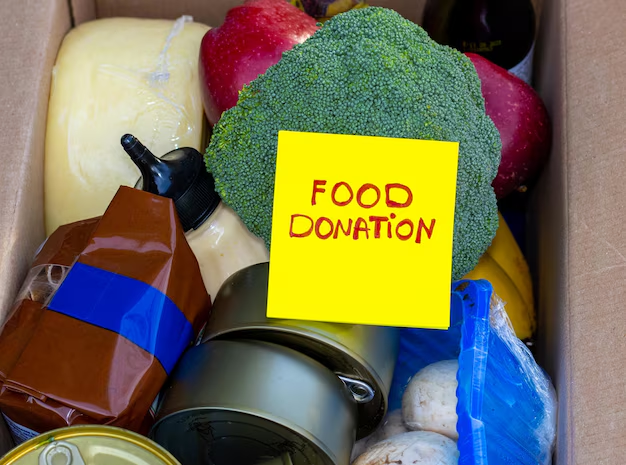Navigating Food Stamps for Undocumented Immigrants in California: What You Need to Know
When it comes to the complex landscape of food assistance in the United States, particularly for undocumented immigrants, there are often more questions than answers. One of the most pressing questions is whether undocumented immigrants can receive food stamps in California. The answer isn't as straightforward as one might hope, but this guide is here to illuminate the topic from various angles, providing clear, accurate, and practical insights.
Understanding Food Stamps in California
A Brief Overview of CalFresh
In California, the food stamp program is known as CalFresh. It provides monthly benefits to low-income individuals and families to help them purchase nutritious food. CalFresh aims to improve the health and nutrition of Californians by increasing their food purchasing power.
Eligibility Criteria for CalFresh
To qualify for CalFresh, several criteria need to be met, including but not limited to income limits, household size, and residency requirements. U.S. citizens and certain non-citizens with eligible immigration status can apply for these benefits. However, the eligibility of undocumented immigrants remains a point of significant inquiry and misconception.
Undocumented Immigrants and Food Stamps
Can Undocumented Immigrants Apply for CalFresh?
As it currently stands, undocumented immigrants are not eligible to receive direct CalFresh benefits. The federal guidelines that govern the Supplemental Nutrition Assistance Program (SNAP), which CalFresh is part of, restrict benefits to citizens and certain lawfully present non-citizens.
Indirect Benefits Through Family Members
While undocumented immigrants cannot receive CalFresh benefits themselves, they can apply on behalf of their U.S. citizen or eligible legal resident children. This aspect is crucial because many mixed-status families in California have children who qualify for benefits, even if the parents do not. It is important for families to know that disclosing an undocumented status while applying for eligible family members does not jeopardize their personal immigration situation.
Related Options and Resources
WIC Program
For families with young children and pregnant women, the Special Supplemental Nutrition Program for Women, Infants, and Children (WIC) offers assistance. WIC does not have citizenship requirements, which means undocumented individuals may be eligible if they meet other criteria.
Food Banks and Community Resources
In addition to government programs, food banks and community organizations provide essential support. These resources are available to anyone in need, regardless of immigration status. They distribute food, offer nutritional information, and sometimes provide other forms of support.
Key Challenges for Undocumented Immigrants
Fear of Public Charge Rule
A major concern among immigrant communities is the public charge rule, which evaluates certain individuals' dependency on government assistance when they apply for a green card. However, CalFresh and similar benefits do not count under the public charge determination.
Navigating Resources
For many undocumented families, the process of finding and applying for available resources is daunting, primarily due to language barriers, fear of deportation, and a general lack of awareness about available programs and rights.
Practical Tips for Families Navigating Food Resources
To empower families needing assistance, a few crucial steps can be taken to access food resources effectively:
- 📜 Educate Yourself on Rights: Undocumented status does not preclude individuals from seeking assistance for eligible family members.
- 🗣️ Seek Bilingual Support: Many agencies and community resources offer services in multiple languages to assist non-English speakers.
- 🤝 Connect with Community Organizations: Local organizations dedicated to immigrant communities can provide tailored support and resources.
- 📚 Stay Informed: Keeping up with changing policies ensures that families make the best use of available resources without unnecessary fear or confusion.
Summary Table: Food Assistance Options
| Program | Eligibility | Benefits |
|---|---|---|
| CalFresh | U.S. citizens, certain non-citizens | Monthly food assistance |
| WIC | No citizenship requirement | Nutritional support for women and children |
| Food Banks | Open to all | Varied food and nutrition support |
Next Steps for Undocumented Families in Need
Moving forward, undocumented families should focus on understanding their rights, eligibility, and the potential resources available to them and their families:
- Assess Family Eligibility: Determine if any family members qualify for CalFresh or other programs.
- Utilize Community Resources: Visit local food banks and immigrant support organizations.
- Stay Updated: Keep abreast of any changes in legislation or policies that could affect eligibility or access to resources.
- Spread Awareness: Sharing information within communities can empower more families to seek assistance without stigma or fear.
Food insecurity is a serious issue that transcends immigration status, and understanding the options available is crucial for promoting well-being and stability in California's diverse communities. By navigating these complex systems with the right knowledge, families can ensure they access the fundamental support needed for a healthy life.

Related Topics
- Am I Eligible For Food Stamps
- Are Food Stamps Being Cut
- Are Food Stamps Federal Or State
- Are Food Stamps Frozen
- Are Food Stamps Funded By Taxpayers
- Are Food Stamps Going Away
- Are Food Stamps Income Limits
- Are Food Stamps Paused
- Are Illegal Aliens Eligible For Food Stamps
- Are Illegal Immigrants Eligible For Food Stamps
